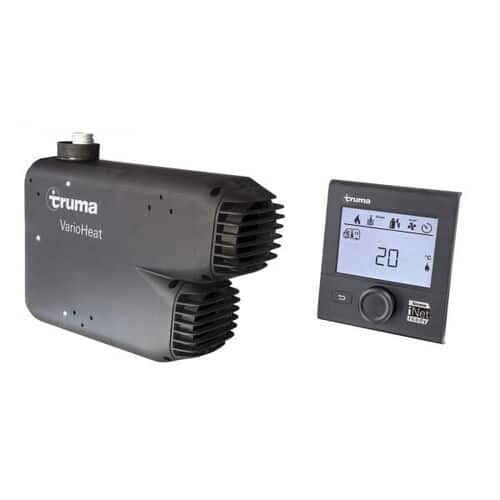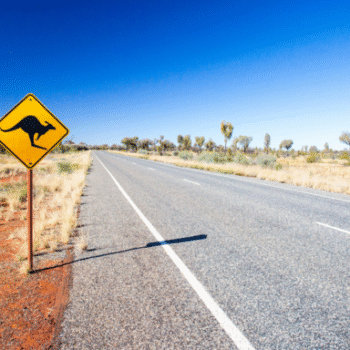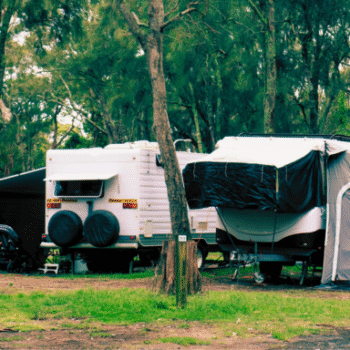Allbrand Caravan Services Products
Gas or Diesel Heaters: Finding the Ideal RV Heating Solution
Both gas and diesel heaters are popular choices among caravan and motorhome enthusiasts, offering a refuge from the cold during adventurous travels. But with each type boasting its unique set of pros and cons, how does one choose the perfect companion for their journey? We take care of the installation, repairs and maintenance and here is more information on their efficiencies, safety features, installation requirements, and long-term costs which can shed light on the best fit for one’s specific needs, ensuring warm, cosy nights on the road.

Gas Heaters
Pros of Gas Heaters
Efficient and Fast Heating:
Gas heaters provide quick and efficient heating, making them ideal for those cold mornings or evenings when you need warmth immediately.
Wide Availability:
Propane gas, which is commonly used in RVs, is readily available at most campgrounds and petrol stations, making it convenient to refuel your heating system.
Quiet Operation:
Gas heaters are known for their quiet operation, ensuring a peaceful and uninterrupted night’s sleep.
Compact and Space-Saving:
They come in compact sizes, making them suitable for RVs with limited space.
Diesel Heaters
Pros of Diesel Heaters:
Highly Efficient: Diesel heaters are incredibly efficient and can maintain a comfortable temperature for an extended period, even in extremely cold conditions.
Low Fuel Consumption: Diesel heaters are known for their low fuel consumption, which can be cost-effective during long journeys.
Safety Features: Many diesel heaters come with safety features such as temperature control and automatic shutdown in case of any malfunctions.
Independent Fuel Source: Diesel heaters have their fuel tank, reducing the need to rely on external propane tanks or refuelling stops.
Considerations for Diesel Heaters:
Installation: Diesel heaters typically require professional installation due to their more complex setup, including exhaust systems and fuel lines.
Initial Cost: Diesel heaters often have a higher initial cost compared to gas heaters, but their long-term efficiency can offset this investment.
Space Requirements: They might take up more space in your RV due to the additional components required for installation.


Which Heater is Right for You?
Choosing between a gas and diesel heater for your RV depends on your specific needs and preferences. Here are some factors to consider:
- Climate: If you frequently travel in extremely cold conditions, a diesel heater might be a better choice due to its superior heating capabilities.
- Budget: Consider your budget not only for the initial purchase but also for ongoing fuel costs.
- Space: Assess the available space in your RV for installation. Gas heaters are often more space-efficient.
- DIY vs. Professional Installation: Are you comfortable with DIY installations, or do you prefer professional installation and peace of mind?
- Frequency of Use: If you only occasionally need heating, a gas heater might suffice. For full-time or winter travellers, a diesel heater’s efficiency might be more appealing.
Both gas and diesel heaters offer effective heating solutions for your RV, each with its unique set of advantages and considerations. To make the right choice, assess your travel habits, budget, and space availability. Whichever option you choose, ensure you follow safety guidelines and professional installation is highly recommended for diesel heaters to guarantee safe and efficient heating during your RV adventures. Contact us or visit our shop if you need expert opinion on which heater of your choosing.
Frequently Asked Questions
Gas heaters provide quick and efficient heating, are widely available, operate quietly, and are compact and space-saving.
They require proper ventilation to prevent carbon monoxide buildup, can become costly over time due to propane consumption, and require regular maintenance for safety and efficiency.
Diesel heaters are highly efficient, maintaining a comfortable temperature even in very cold conditions. They also boast low fuel consumption.
Many diesel heaters come equipped with features like temperature control and automatic shutdown in case of malfunctions. Diesel heaters require servicing every 12 to 24 months.
Diesel heaters often require professional installation, have a higher initial cost, and may take up more space due to their additional components.
Consider factors like the climate you’ll be travelling in, your budget (both initial and ongoing costs), space availability in your RV, your comfort with DIY vs. professional installation, and how often you’ll need the heating. We highly advise gas heaters needs to be fitted by certified gas technician.
While both heaters would benefit from professional installation, it is especially recommended for diesel heaters because of their more complex setup.
For occasional heating needs, a gas heater might be more suitable. Diesel heaters are more tailored for full-time or winter travellers due to their efficiency.
Proper ventilation ensures safe operation by preventing the buildup of harmful carbon monoxide gas.
Always follow safety guidelines, opt for heaters with safety features, and consider professional installation, especially for diesel heaters.
It should be noted that a refrigerator usually requires far less gas than a heater, even when running at full capacity. By way of comparison: a modern refrigerator in a motorhome consumes around 14g to 20g of gas per hour at full power, while a heater consumes around 150g to 500g of gas per hour.
Get the Best Parts and Service for Your Caravan or Motorhome Today
Book a 15-minute call with our head technician now for free (normally $65) to get started.
Check Out the AllBrand Blog
Get the latest caravan news, tips, and tricks right here.
Australia’s Must-Visit Caravanning Destinations
15 Tips for a Stress-Free Caravan Holiday
Watch Our RV Upgrades and Off Grid Solutions Videos
Get the Best Parts and Service for Your Caravan or Motorhome Today
Book a 15-minute call with our head technician now for free (normally $65) to get started.


